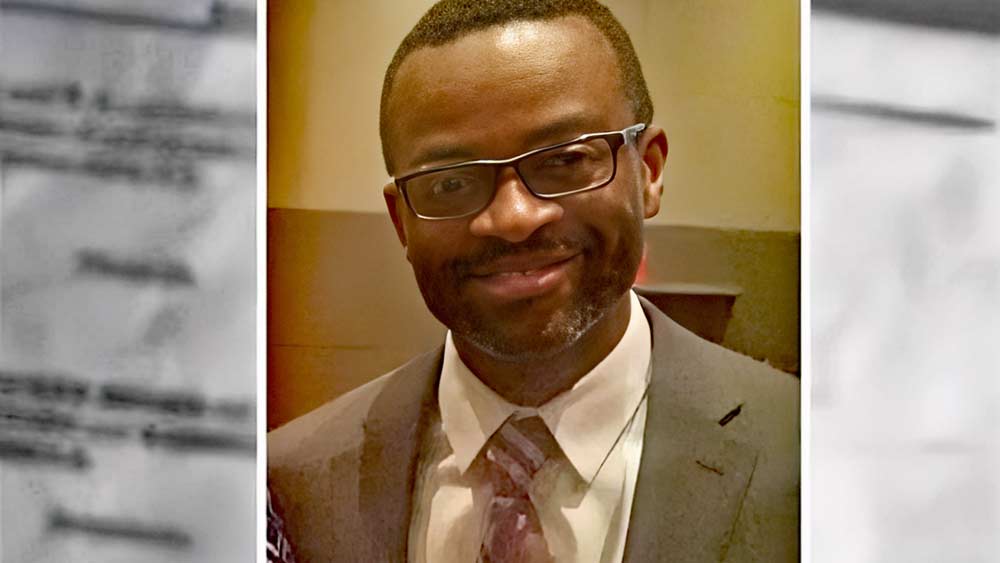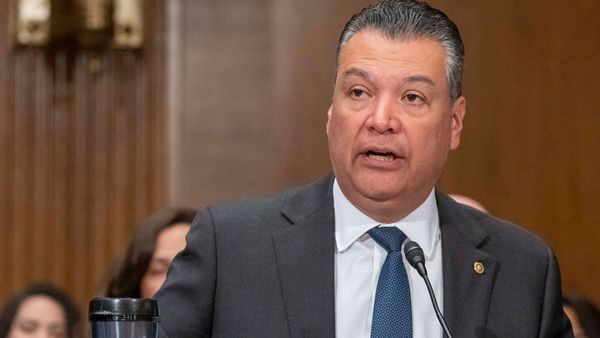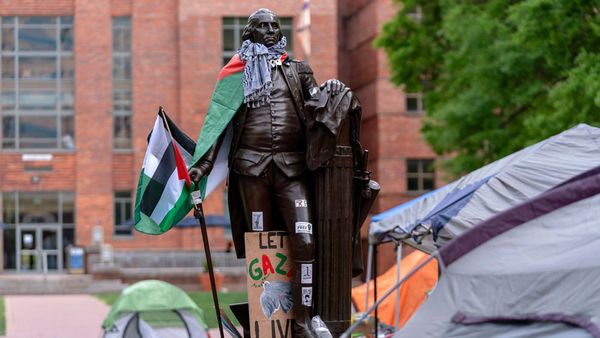November 5, 2010
Report: Cameroon Among Worst of Anti-Gay African Nations
Kilian Melloy READ TIME: 4 MIN.
A long-pending bill in Uganda that would punish gays with the death penalty is only the tip of the iceberg. Recent media attacks on gays in that nation have called for GLBTs to be attacked, arrested, and hanged--with the result that individuals have been beset by anti-gay vigilantes.
Even as Uganda has stirred political and media attention globally over the past year, since the introduction of legislation that would lethally enhance sentences meted out to gays, other African nations have pursued and persecuted gays almost as vigorously.
In Malawi, a gay couple--Steven Monjeza, 26, and his fianc�e, Tiwonge Chimbalanga, 20--celebrated their commitment to one another by throwing a traditional engagement party. They were promptly arrested under the country's "decency" laws--which are often used against gays--and imprisoned for months before going on trial, where they were found guilty and sentenced to the maximum penalty of 14 years' hard labor.
In Zambia, a nation just west of Malawi, civil and religious leaders ramped up anti-gay rhetoric earlier this year, with the result that American-based international watchdog Human Rights Watch has sent a letter to that nation's leadership deploring the likely result that gays and other MSMs (men who have sex with men) will go underground and HIV rates will skyrocket as MSMs avoid testing and medical care out of fear of persecution.
Earlier this year, religious leaders' anti-gay rhetoric drove a violent mob attack on the Kenya Medical Research Institute (KMRI), a medical facility in Kenya. The Feb. 12 attack on KMRI, located in the coastal town Mtwapa, sent shockwaves across the country and sparked riots and anti-gay violence by vigilantes in other towns, according to a Feb. 17 posting at the website for the Human Rights Watch (HRW). Meantime, according to the HRW's Dipika Nath, "The government is sitting silent while mobs try to kill human rights defenders and assault people they suspect are gay."
Similar religiously driven anti-gay persecution has wracked Nigeria, a large nation in which both Christian and Muslim anti-gay influences set the stage for violence targeting GLBTs. Changing Attitude Nigeria Director Davis Mac-Iyalla told EDGE in 2008 that, "The real threat of death or serious injury is not from legal actions by the state, but from mob violence and unofficial actions by the police who are a law unto themselves."
Indeed, the bill proposed in Uganda by anti-gay politician David Bahati--who has ties to religiously motivated American groups that oppose GLBT equality measures--was proposed in the wake of a visit to that nation by virulently anti-gay American evangelicals.
Workers at a GLBT advocacy group in Zimbabwe were held in jail for six days, during which time they were allegedly tortured, following a police raid on their office. They were accused of possessing gay pornography, as well as a document that criticized the nation's notoriously anti-gay president, Robert Mugabe, who has sworn that the nation's new constitution will not provide legal protections to gays.
And then there's Cameroon. LezGetReal posted an expose on Nov. 5 that laid out the legal and social dangers braved by gays and lesbians in Cameroon, including arrest, rape, and loss of their children.
LezGetReal reported that a new report on anti-gay persecution has been published by the International Gay & Lesbian Human Rights Commission (IGLHRC) and is now available for download from that group's website. A posting at the IGLHRC site explains, "Beyond arrest, gay, lesbian, and bisexual Cameroonians are at higher risk for other problems. Police and prison officers routinely abuse detainees they suspect of same-sex sexual relationships. Gay, lesbian, bisexual, and transgender people may be more vulnerable to violent attacks inside and outside the home, as they often avoid reporting a crime for fear of being arrested, in turn, for homosexuality. Lesbian women can lose custody of their children and be ostracized by their families."
Wider social problems are courted by a system that provides little care or support around HIV transmission: "Those who are at risk for HIV/AIDS infection or who are HIV positive have difficulty obtaining medical and legal services," the posting continues. "A general climate of fear means that rigid gender codes are strictly enforced and people live out their lives in secrecy."
The report is titled "Criminalizing Identities: Rights Abuses in Cameroon based on Sexual Orientation and Gender Identity," and was prepared jointly by Alternatives-Cameroun, l'Association pour la d�fense des droits des homosexuels ("The Association for Defense of Homosexuals' Rights"), Human Rights Watch, and the IGLHRC.
Although Uganda and Malawi both drew international criticism and pressure--which delayed the implementation of the Uganda bill and led to the release of Monjeza and Chimbalanga--Cameroon has not been put under similar pressure. LezGetReal reported that the U.S. State Department provided only scant information to American travelers destined for the African nation, and that the U.S. has not brought diplomatic or economic pressure to bear on Cameroon for its persecution of GLBTs.
Gays who are charged under Cameroon's anti-gay statues face five years' imprisonment and steep fines that can reach 200,000 francs (about $430 in U.S. currency,a fortune to most of the nation's impoverished citizens), according to a Wikipedia article.
Kilian Melloy serves as EDGE Media Network's Associate Arts Editor and Staff Contributor. His professional memberships include the National Lesbian & Gay Journalists Association, the Boston Online Film Critics Association, The Gay and Lesbian Entertainment Critics Association, and the Boston Theater Critics Association's Elliot Norton Awards Committee.




